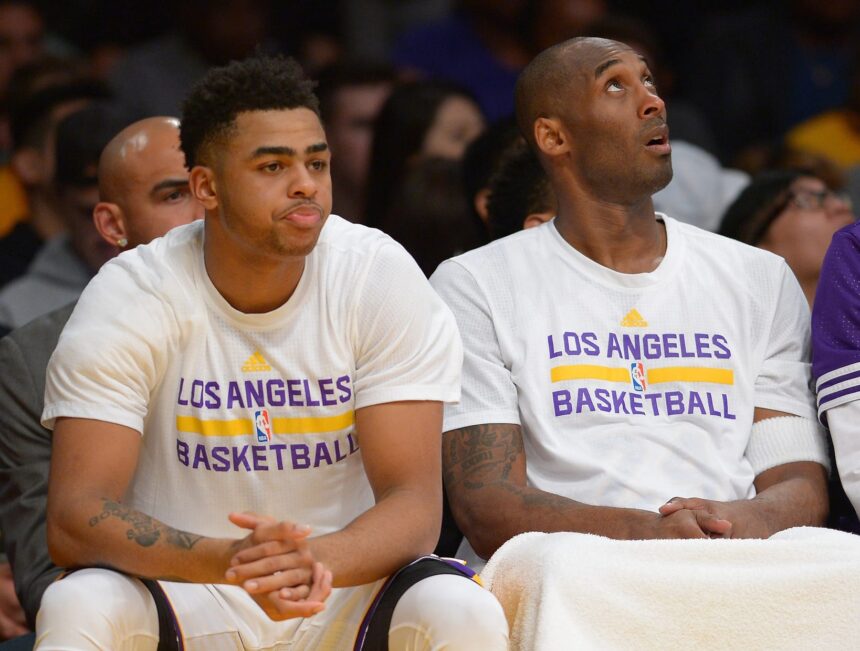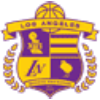Allow me to preface this column with an apology — not to Byron Scott, Kobe Bryant, or Jim Buss. No, this apology goes out to you, the reader. I abandoned you and took a well-deserved vacation last week. I went to Hawaii, a land of devastating natural beauty, which is a massive change of pace when you live in Los Angeles and have perfected the art of convincing yourself that a strip mall or a video billboard is “charming.” While away, I tried to detox myself and recenter my basketball mind after the first handful of games in this soul-shattering Lakers season. So, I sat on the beach and read. I cracked open The Breaks of the Game, David Halberstam’s classic account of the 1979-80 Portland Trail Blazers season and my old boss Bill Simmons’s favorite book. For the uninitiated, Halberstam chronicles in exacting, painful detail the collapse of the Blazers championship team following the departure of Bill Walton to the San Diego Clippers. It wasn’t just Walton’s devastating, career-altering foot injury that accelerated their decline. The trials and tribulations of the players who remained or came over in the Walton deal — Maurice Lucas, Kermit Washington, current Nets head coach Lionel Hollins — were as much to blame for the team’s sub-.500 record and ignominious playoff exit as the big man’s departure.
Broadly, you can boil that all down to one thing: team chemistry. Chemistry is that element every professional sports team wants and needs, but also the hardest one to attain. Coaches like Phil Jackson and Gregg Popovich seemed to have figured out how to create the ideal circumstances for players to gel and coexist as a coherent unit on the basketball court. Others have that experiment blow up in their face.
As I read Breaks of the Game, I couldn’t help but think about the Lakers, as I am to do on a regular basis. Here’s a team with a lot of pieces that make no logical sense when placed next to each other: a starting lineup with two point guards, two forwards who like to handle the ball, and a center who can’t finish at the rim; old school chuckers incapable of playing off the ball mixed with young talent soaking up their bad habits; a coach who seems to favor the veteran pecking order over player development. I hope someone writes a Breaks of the Game-esque book on this Laker season, because from afar, it seems like a perfect example of when chemistry fails. This would all be a harmless goof if it weren’t for the inescapable truth that every second of dysfunction and internal dissent threatens to destroy the maturity of D’Angelo Russell in the same way it claimed the Blazers’ dynastic aspirations.
Halberstam makes a point early in his book that’s gospel in basketball circles today, but was likely a bit fresher in 1981. He states that where baseball and football are sports where each player is responsible only for his or her individual task (i.e., a center blocking for his quarterback or a right-fielder who patrols, well, right field), basketball teams live and die on the interplay between the five people on the court. Fluid movement, timing, passing, and trust in each other are fundamental aspects of the game. In fact, the Trail Blazers impressionistic logo is meant to represent two opposing basketball teams moving in perfect unison. The delicate balance of chemistry and connection that is necessary for success is part of what keeps the Golden State Warriors from losing. They clearly enjoy each other and play the game together. On the flip side, the Houston Rockets and Los Angeles Clippers are falling apart despite plenty of individual talent because it appears that they’d all rather toss each other off a tall building than share a layup line.
This brings me back to the Lakers. I watch all the games. I read the box scores. I obsess over every stupid locker room quote. I get nervous when LA Times Laker blogger Eric Pincus takes to Twitter to bemoan D’Angelo’s terse, sour post-game interview after the loss to, of all teams, the Portland Trail Blazers. In Pincus’s post from Monday, he relates what he experienced with Russell in the locker room. “Does he look forward to trying to stop Golden State from reaching that goal [continuing their undefeated streak]? ‘Sure,’ said Russell, in a relatively brief interview.”
The No. 2 overall pick in last year’s draft gets short with a journalist after his team loses their 12th game of the year in the middle of November. It’s understandable that he doesn’t want to talk, but it’s also cause for concern. Where’s the confidence this guy had before the season started? Could it be that watching Kobe Bryant shoot 6-of-22 in the Blazers game is demoralizing? Byron Scott can say Kobe “earned” the right to shoot whenever he wants, but should playing time in the NBA really be decided on some kind of medieval seniority system? I’m generally fine with players getting preferential treatment on the airplane or in the locker room, but should someone shooting as abysmally as Kobe is be given the green light to fling airballs into the photographers’ row?
Kobe and Byron have both spoken recently about the frustration they have with the way the ball is sticking to some of these young players without calling them out directly in the press. Is it a stretch to say that Julius, Jordan, and D’Angelo are learning some of these habits from the future Hall of Famer that gets to take as many bad shots as he wants whenever he wants? Kobe has decided he’s going to be a role model for young players like D’Angelo Russell. What kind of example is he setting by insisting on asserting his privilege when his shot is just not there? Make no mistake, this is not a case of a guy “finding his legs” early in the season. This same pattern was developing last year before Kobe’s season-ending injury. His shooting percentage was abysmal and critics were apoplectic. Here we are again, and Byron and Kobe are asking the kids to accept it. The chemistry is off.
This uneasy mix of ball-dominant veterans, impressionable newbies, and Roy Hibbert is seemingly bound to fail without some form of reality check for the guys who believe it is their right to sink this club into further disrepair. Tonight, a team that plays in perfect harmony, a living embodiment of the Blazers logo — the Golden State Warriors — will seek to continue their undefeated streak against our Lakers. Kobe will come to play, eager to once again be the dragon slayer — to remind Stephen Curry of his place in the NBA pantheon. On paper, it will likely be anything but. In truth, it will almost surely be yet another reminder that in basketball, the team that trusts each other, that finds the hot hand, and remains a unit is the one that comes out ahead. Maybe someone should send Kobe a copy of Breaks of the Game. It can’t hurt.





